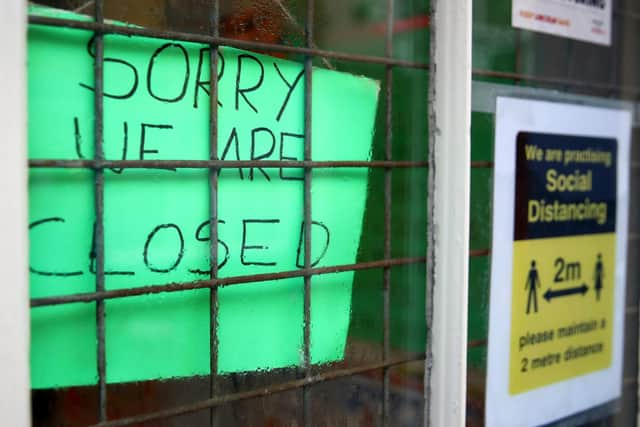Why many people like me won’t be looking back on the pandemic - David Behrens
A broad and brash radio comedy, its catchphrases remained part of the national language for generations to come. Its star, the Liverpool comic Tommy Handley, did more than anyone except Churchill to lift the nation’s spirits during its darkest hours.
The title stood for It’s That Man Again, a reference to a newspaper headline about Hitler’s threats to the rest of Europe. But the show was no political rapier; just a rag-bag of old jokes littered with topical references that somehow managed to sum up life on the Home Front.
Advertisement
Hide AdAdvertisement
Hide AdYet it was forgotten almost as soon as peace was declared. Even within the BBC it became deeply unfashionable and when Handley died in 1949 his old recordings were consigned to the archive, seldom to be repeated.


There was a reason for that: ITMA was synonymous with a time its audience wanted to leave behind.
Many of us with parents who lived through the war will recognise that mindset. When my dad was demobbed from the RAF in 1947 he was looking forwards, not back. The conflict had been the defining chapter of his life so far and he wanted to celebrate the achievements and mourn the sacrifices but not wallow in the day-to-day awfulness of it all.
So he watched The Dambusters and The Great Escape whenever they were on TV but he seldom spoke of his own experiences.
Advertisement
Hide AdAdvertisement
Hide AdThat’s pretty much how I feel about the events of four years ago. Call me an ostrich if you like but I don’t want to be reminded. And that seems to be the common consensus; it’s why the anniversary this week passed with so little ceremony.
For those of us fortunate enough not to have suffered bereavement as a direct consequence of Covid, the pandemic-induced lockdown was an inconvenience, an assault on civil liberties the wartime generation never had in the first place. And though there are lessons for next time, the learning falls mostly on governments – because what could the rest of us really have done differently other than to take no notice?
That’s what will happen when the next pandemic arrives. The lack of foresight, general ineptitude and shameless double standards weakened our trust irrevocably in those who seek to govern. Four years ago it was only the knowledge that other countries were in the same boat that kept our fragile sense of community together. Next time it will be harder to hold the line.
Our community spirit in any case had begun to break down when Tommy Handley said his last TTFN. It meant ‘ta-ta for now’ and everyone was saying it when people still spoke with one voice. We no longer do that and it’s especially evident on this Easter weekend, a holiday whose religious significance lies buried under a mountain of chocolate eggs.
Advertisement
Hide AdAdvertisement
Hide AdYou need to look back only 30 years to see the speed of our retreat from religion. That was when the Sunday Trading Act first allowed shops to open all weekend and thus consigned our traditional day of rest to history. But the powerful church lobby saw to it that an exception was made for Easter Sunday and it remains the one day outside Christmas where the big stores are not permitted to open their doors.
Would that lobby garner the same support today? I doubt it. Statistically we are no longer a Christian country and the Church of England is too riven with private wars to speak for most of the rest of us.
Just this week the rector of Liverpool broke ranks and resigned, citing issues over “race, gender and sexuality discrimination” and saying the institution’s failure to safeguard its flock was “an abuse and a further assault on the image of God”.
A few days earlier, even the Archbishop of Canterbury took exception to his own organisation’s job advert for a 'deconstructing whiteness officer' on £36,000 a year. And the Archbishop himself stands accused by an MP of ‘scamming taxpayers’ over asylum seekers who claim to have converted to Christianity.
Advertisement
Hide AdAdvertisement
Hide AdSo the one facet of the Church of England that is truly representative of the country at large is the extent to which it has broken down. That’s not an inspiring Easter message, is it?
Even during the war they didn’t trust those in authority but they were subservient. We are less so now; less than when the Sunday trading law was passed and less still than when we were locked down.
And that’s what really separates us from wartime Britain, the generation of Tommy Handley and my dad. They had made sacrifices they believed would bring a better tomorrow for everyone. Not many of us did that four years ago – and perhaps that’s why we don’t like to be reminded.
Comment Guidelines
National World encourages reader discussion on our stories. User feedback, insights and back-and-forth exchanges add a rich layer of context to reporting. Please review our Community Guidelines before commenting.